Aptiv Is Committed to Responsible Water Usage
Although Aptiv’s operations are not water-intensive, we are committed to ensuring responsible water usage within our operations. In 2021, we set a goal to reduce our water consumption at sites in water-scarce regions by 2 percent annually to help meet our 2025 sustainability targets.
We saved more than 17.5 million liters of water in 2021 by reducing consumption and enabling reuse. Our high-risk sites reduced water usage by 7 percent — exceeding our 2 percent annual goal. We highlighted some of the water conservation projects that helped us achieve this success in our internal Sustainability Awards.
Data is the first step
An Aptiv facility in Juárez, Mexico, began using digital meters to track water consumption through an online platform, document trends and identify areas where water management practices could be improved. The system provides accurate data on the facility’s monthly, weekly, daily and even hourly water usage that the environmental health and safety team uses to create flexible weekly reports. Getting a better understanding of water usage helps the team establish realistic consumption limits and design effective operational improvement strategies.
Preserving existing fresh water
Under guidance from local authorities, 40 Aptiv employees from a facility in Chennai, India, volunteered for a project to clean up a nearby lake. Removing litter from the water increased the lake’s storage capacity and provided a cleaner source of fresh water for local fisheries and irrigation systems. Clearing debris and invasive species around the edge of the lake helped improve flood control and groundwater recharge by providing unobstructed pathways for rainwater to flow. The team also planted trees on the lake’s perimeter to prevent the introduction of harmful pathogens and chemicals by improving soil retention and minimizing runoff.
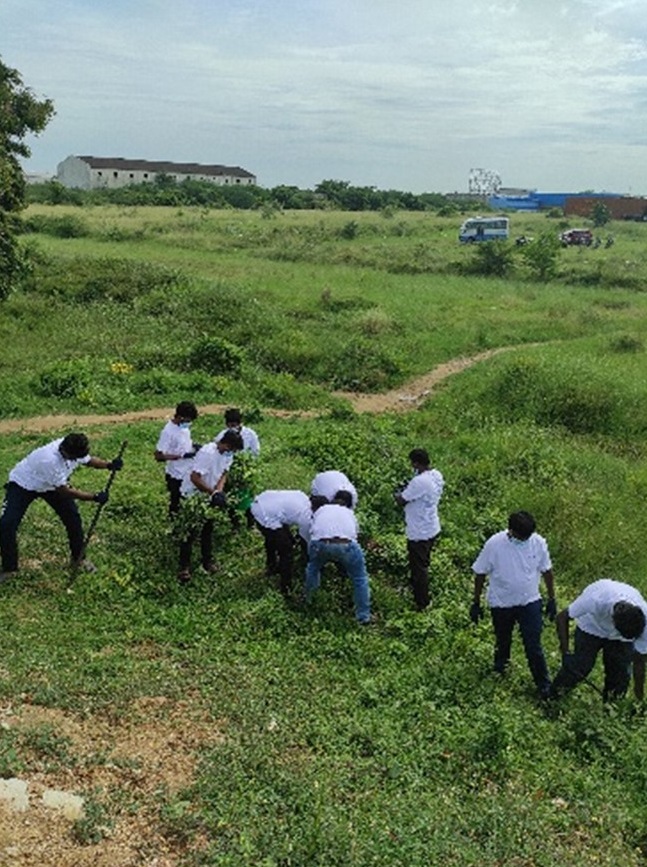
Aptiv employees cleaning up the perimeter of a local lake in Chennai, India
Small changes add up
Several Aptiv facilities implemented new water filtration systems to limit unnecessary fresh water consumption and contamination. A facility in Juárez installed a system that will save about $20,000 a year and 32,000 liters of water per day — roughly the same amount of water that would be consumed by 70 households.
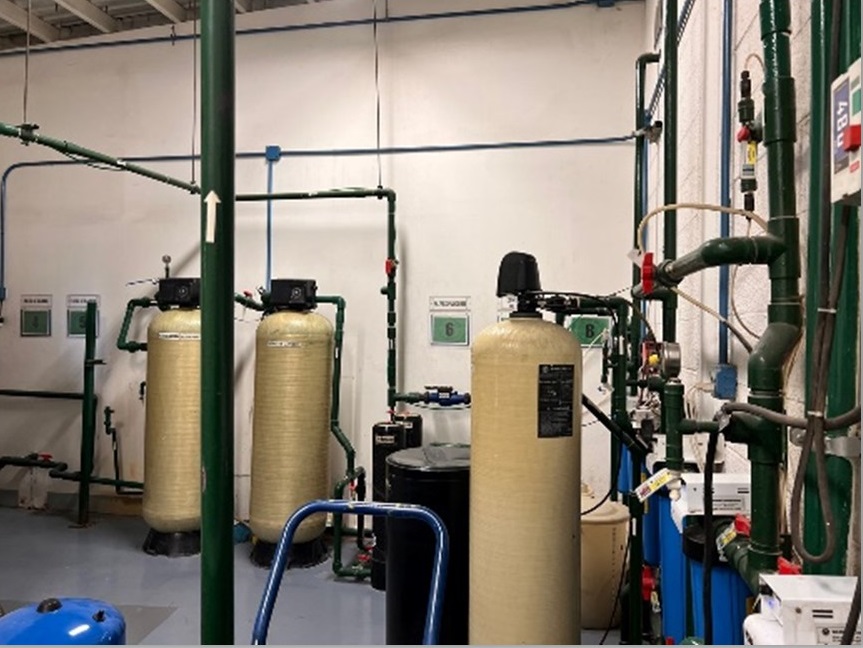
An onsite water filtration system at an Aptiv facility in Juárez, Mexico
Facilities in Chennai and Pune, India, also implemented onsite water filtration systems which will save more than 72,000 liters of water each day to be reused in gardening and to flush toilets.
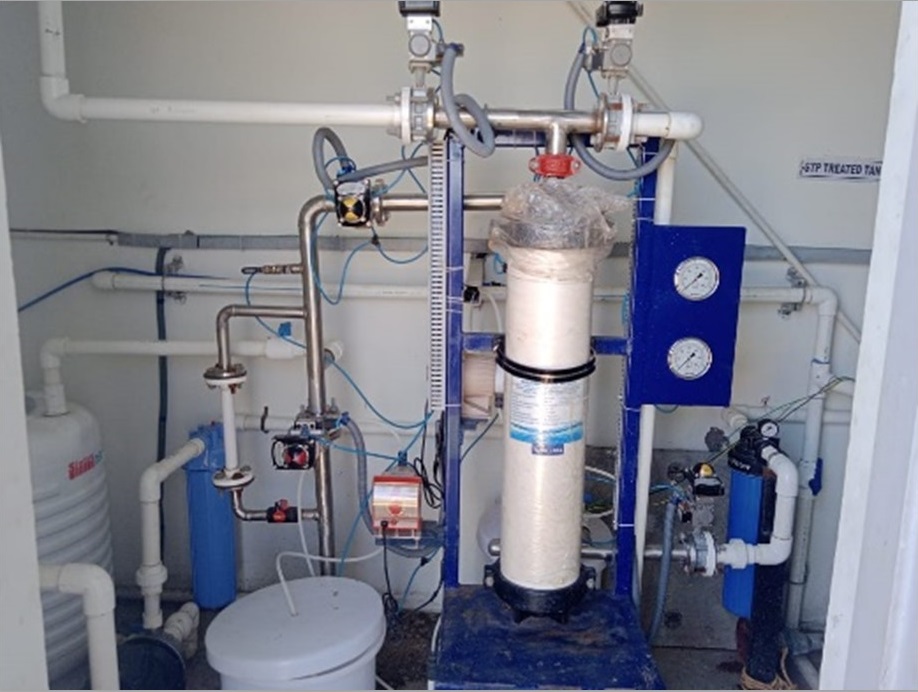
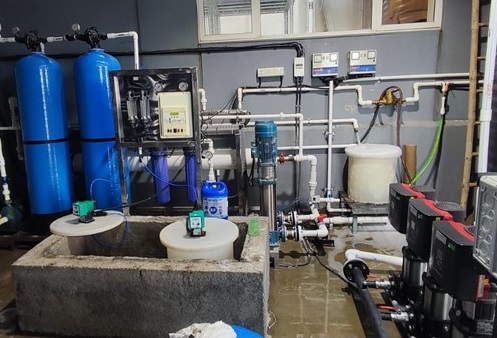
Onsite water filtration systems at facilities in India, in Chennai (left) and Pune (right)
A facility in Espírito Santo do Pinhal, Brazil, worked with the local municipality to reactivate a retired sewage treatment station with the capacity to filter close to 50,000 liters per day, saving approximately $57,000 compared with the cost of building a dedicated treatment station, and minimizing the spread of pollutants that could contaminate local waterways.
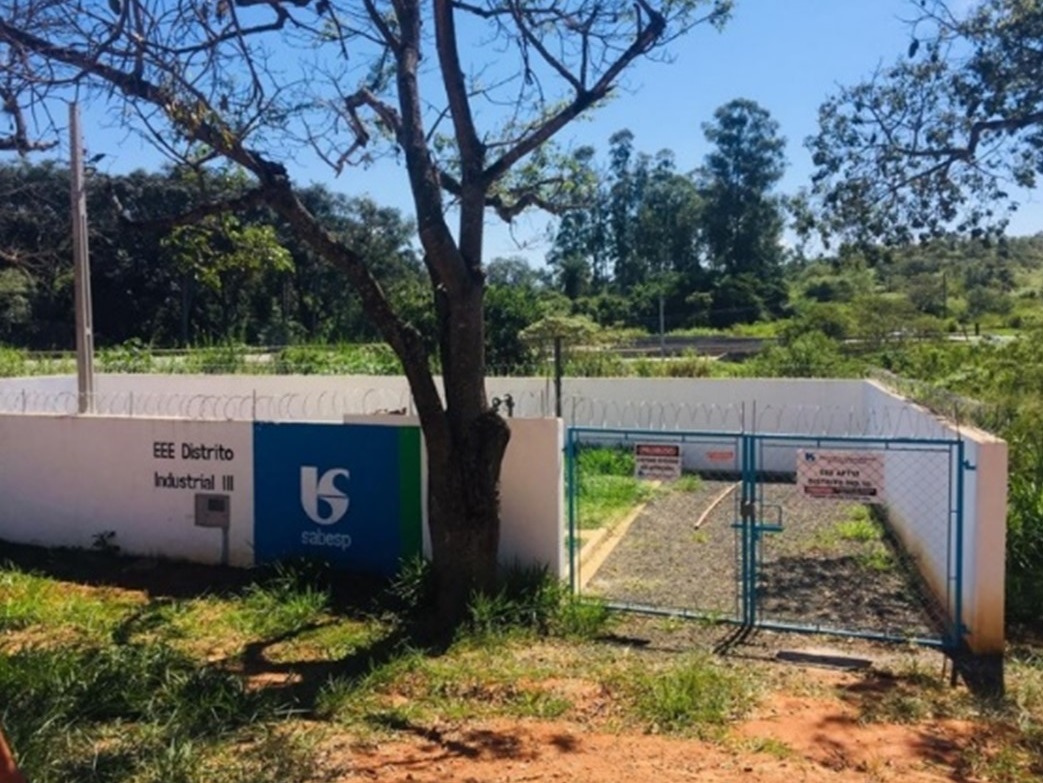
A reactivated water treatment station for an Aptiv facility
in Espírito Santo do Pinhal, Brazil
Empowering change at the local level
We prioritize the conservation of fresh water because we know it has a positive impact on the health of the communities where our employees live. But we also know that sustainability means enabling facilities at the local level to prioritize projects that offer the most environmental benefit to them. Our internal Sustainability Awards recognize facilities for a variety of initiatives to support the local environment, including solar panel installations, reductions in waste and tree-planting initiatives.